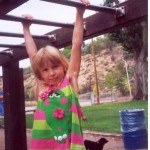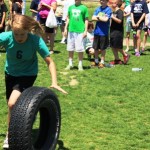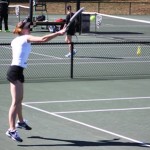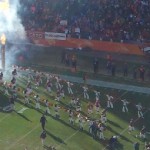From an academic perspective there is a distinct difference between play, games, sports, and athletics. The following definitions are based on classroom lectures (Competitive Sports and Sports in Society) given by Dr. Arnold Flath at Oregon State University during the mid-1970s.
Play is unstructured activity. Youngsters are creative when they engage in play. Tell a five-year old boy to go play and he will run, jump, skip, and do somersaults. He may take time out to look at a bug or smell a flower. Give a young girl a ball and she will kick it, throw it, roll it, and bounce it. Kids instinctively know how to play – they don’t need coaches, clinics, officials, scoreboards, or cheerleaders. Play is physical activity in its purest form.
Games are activity with a minimal set of rules, equipment, and coaching. Games may be competitive or cooperative and a scoreboard is optional. Young basketball players may play a game of horse or they may work together to make twenty free throws as a team. When games are played it is possible to have multiple winners.
Sports are a structured form of physical activity. There are teams, coaches, officials, and a scoreboard. Sports are played by amateurs for the “love of the game”. There was a time when college athletics and the Olympics could be classified as sports.
Athletics is competition that exists for the purpose of determining a winner. It involves a minimal set of rules, much like games. The difference is that athletic activity involves competition just short of open warfare. Athletics may involve people and machines. It exists for entertainment purposes and financial gain.
Over the past 40 years it has become more common to use the words play, games, sports, and athletics interchangeably. For some, the misuse of these terms has blurred the actual differences between them. As a result there is confusion between the purpose of professional competition and youth sports. As a result, a Boston father killed another father at an informal hockey practice and the Pom-Pom Mom hired a hitman to kill a rival mother. In other cases, some coaches are too focused on winning and there is an epidemic of overuse injuries in youth sports.
From an academic standpoint, these four words have distinct meanings. We watch our kids climb trees and throw rocks in the river (Play). As they age we play catch with them in the park and buy them a basketball goal so they can shoot hoops in the driveway with the neighbor kids (Games). As they grow older we attend their junior high and high school volleyball and softball games (Sports). Over the years we take them to see the local professional football and hockey teams in the playoffs (Athletics).
Take the time to understand the academic difference between play, games, sports, and athletics and the important roles they play in our society.



